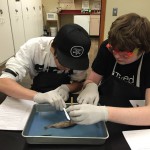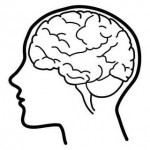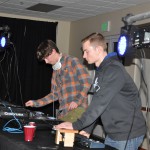 Research: Our hearts go out to those affected by the attacks on Paris last weekend. These are scary moments that bring up many questions for adults and children alike. Time magazine published a great article this week that compiled various expert opinions on how to talk to kids of all ages about the attacks. What matters most is that kids know it’s okay to feel afraid or sad in these moments, that we all express these emotions in different ways, and that we are available for them if they want to talk about it. It’s important that they express their worries and concerns. At the same time, it’s important to maintain routines and reassure them that these events are unusual.
Research: Our hearts go out to those affected by the attacks on Paris last weekend. These are scary moments that bring up many questions for adults and children alike. Time magazine published a great article this week that compiled various expert opinions on how to talk to kids of all ages about the attacks. What matters most is that kids know it’s okay to feel afraid or sad in these moments, that we all express these emotions in different ways, and that we are available for them if they want to talk about it. It’s important that they express their worries and concerns. At the same time, it’s important to maintain routines and reassure them that these events are unusual.Talking About Tragedy with Children
 Research: Our hearts go out to those affected by the attacks on Paris last weekend. These are scary moments that bring up many questions for adults and children alike. Time magazine published a great article this week that compiled various expert opinions on how to talk to kids of all ages about the attacks. What matters most is that kids know it’s okay to feel afraid or sad in these moments, that we all express these emotions in different ways, and that we are available for them if they want to talk about it. It’s important that they express their worries and concerns. At the same time, it’s important to maintain routines and reassure them that these events are unusual.
Research: Our hearts go out to those affected by the attacks on Paris last weekend. These are scary moments that bring up many questions for adults and children alike. Time magazine published a great article this week that compiled various expert opinions on how to talk to kids of all ages about the attacks. What matters most is that kids know it’s okay to feel afraid or sad in these moments, that we all express these emotions in different ways, and that we are available for them if they want to talk about it. It’s important that they express their worries and concerns. At the same time, it’s important to maintain routines and reassure them that these events are unusual.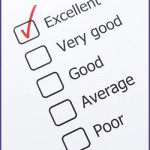
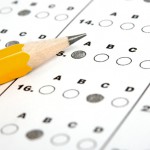 Research: Traditional classrooms depend largely on testing to gauge student learning and achievement. Teachers present a lesson to a large group of students and use tests or quizzes to determine whether or not it stuck. Termed “summative” testing, this practice gives answers to what a student knows or doesn’t know at a particular moment in time. Researcher
Research: Traditional classrooms depend largely on testing to gauge student learning and achievement. Teachers present a lesson to a large group of students and use tests or quizzes to determine whether or not it stuck. Termed “summative” testing, this practice gives answers to what a student knows or doesn’t know at a particular moment in time. Researcher 